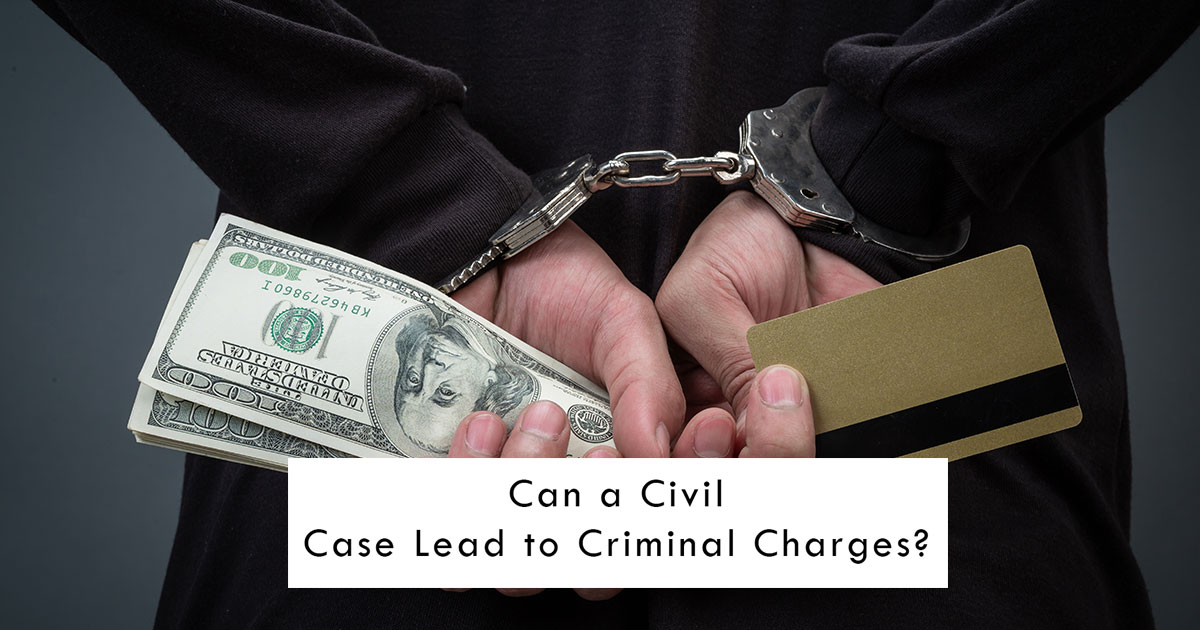In the complex world of law, understanding the interplay between civil and criminal cases is crucial. A common question that arises in legal discussions is whether a civil case can lead to criminal charges. This article aims to clarify this aspect, offering insights into how civil litigation might intersect with criminal proceedings, and under what circumstances a civil case can potentially lead to criminal charges.
Understanding Civil Cases and Criminal Charges
Distinct Legal Arenas
Civil and criminal cases operate in distinct legal arenas. Civil cases typically involve disputes between individuals or organizations, usually concerning matters like contracts, property, or personal injuries. In contrast, criminal cases deal with offenses against the state or society at large, such as theft, assault, or murder.
The Nature of Penalties
Penalties in civil cases often involve monetary compensation or orders to perform or cease certain actions. In criminal cases, penalties can include imprisonment, fines, probation, or community service.
Circumstances Where Civil Cases May Lead to Criminal Charges
Uncovering Criminal Activities
During a civil case, evidence of criminal activity may come to light. For example, if a civil lawsuit for financial fraud reveals evidence of embezzlement or money laundering, this could trigger a criminal investigation.
Perjury and Obstruction of Justice
In the course of a civil trial, if a party or witness lies under oath or obstructs justice, these actions can lead to criminal charges of perjury or contempt of court.
Violations of Court Orders
In civil cases, parties are often required to adhere to specific court orders. Failure to comply with these orders, such as violating a restraining order, can result in criminal contempt charges.
The Legal Process: From Civil to Criminal
Investigation and Prosecution
If criminal conduct is suspected or discovered during a civil case, law enforcement agencies may initiate an investigation. It is up to the prosecutor’s office to decide whether to bring criminal charges based on the evidence.
The Role of Evidence
The evidence uncovered in a civil case can be instrumental in a criminal case. However, the standards of proof are different. Criminal cases require proof “beyond a reasonable doubt,” a higher standard than the “preponderance of evidence” required in civil cases.
Implications for Parties Involved
Legal Representation
Individuals involved in civil litigation who face potential criminal charges should seek legal counsel experienced in both civil and criminal law. This is crucial for navigating the complexities of both legal proceedings.
Impact on Civil Case Outcomes
The initiation of criminal charges could impact the strategy and outcome of the related civil case. It might lead to delays, settlements, or influence the civil case’s direction.
Conclusion
While civil and criminal cases are fundamentally different, circumstances in a civil case can indeed lead to criminal charges. This intersection underscores the importance of understanding legal nuances and the potential implications of actions taken within the scope of civil litigation. Whether as a party involved in a lawsuit, a legal professional, or an interested observer, recognizing the pathways from civil disputes to criminal charges is key to navigating the legal landscape effectively.









Leave a Reply